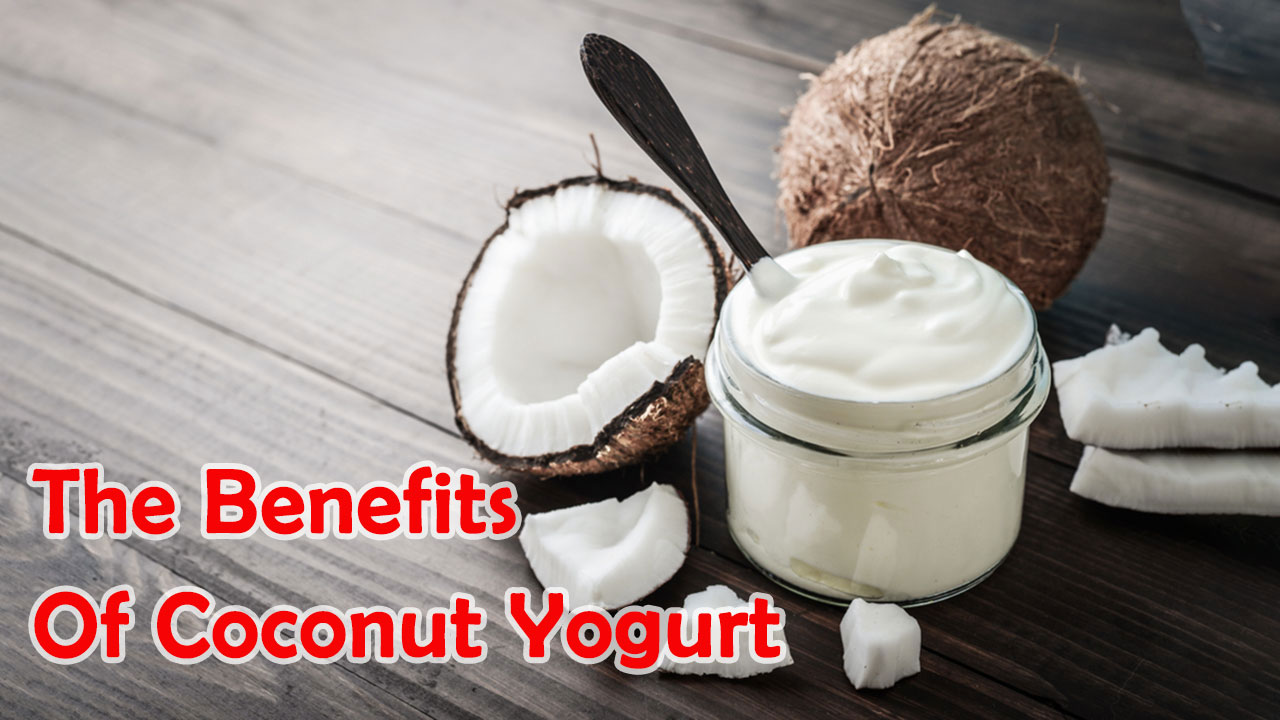In addition to the delicious and unique flavor, the benefits of coconut yogurt make this type of yogurt interesting to many food enthusiasts. An enticing heat flavor and smooth fish keys have made it a popular dessert. So, how do the benefits of coconut yogurt affect us? Let’s find out in this article.
What is coconut yogurt?
Coconut yogurt is a non-dairy alternative to traditional yogurt made from coconut milk. It is a popular choice among people who follow a vegan or dairy-free diet and those who are lactose intolerant or have allergies to dairy products.
The process typically involves fermenting coconut milk with live bacterial cultures, similar to dairy yogurt. The bacterial cultures convert the natural sugars in the coconut milk into lactic acid, which gives the yogurt its tangy flavor and thick texture.
Coconut yogurt is known for its creamy and rich consistency, similar to traditional dairy yogurt. It can be enjoyed independently or used as a substitute for dairy yogurt in various recipes, such as smoothies, desserts, and dressings.
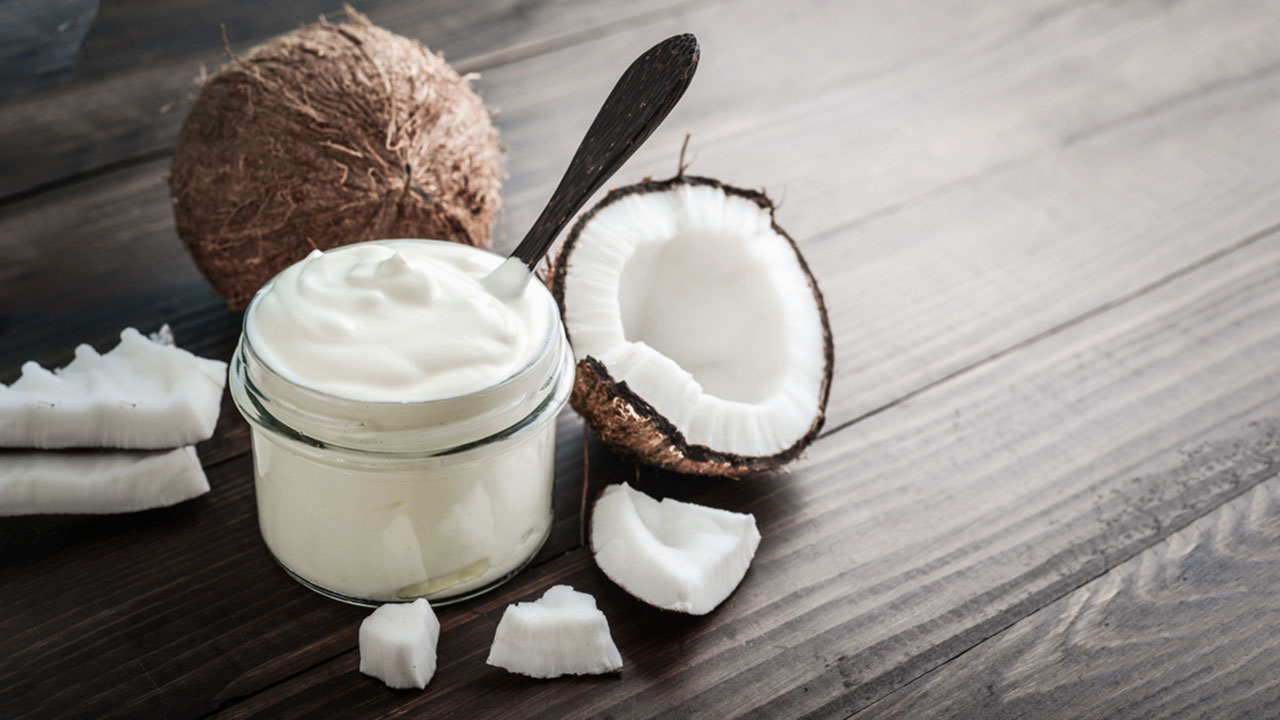
The benefits of coconut yogurt
As a dairy-free alternative, coconut yogurt brings forth a unique blend of health-enhancing compounds derived from its primary ingredient, coconuts.
Healthy fats
Coconut yogurt derives its luxurious texture and distinctive taste from the healthy fats in coconuts. Specifically, it is rich in medium-chain triglycerides (MCTs), a type of saturated fat metabolized differently from long-chain fatty acids found in many animal-based products. MCTs are readily absorbed by the body and quickly converted into energy, making coconut yogurt an excellent option for those seeking a quick and sustainable fuel source.
Vitamins
Coconut yogurt contains several essential vitamins that contribute to various bodily functions. One notable vitamin found in coconuts is vitamin C, a powerful antioxidant that boosts the immune system and aids in collagen synthesis for healthy skin. Additionally, coconut yogurt provides small amounts of vitamins E, K, and B vitamins, which are crucial in energy metabolism, blood clotting, and nerve function.
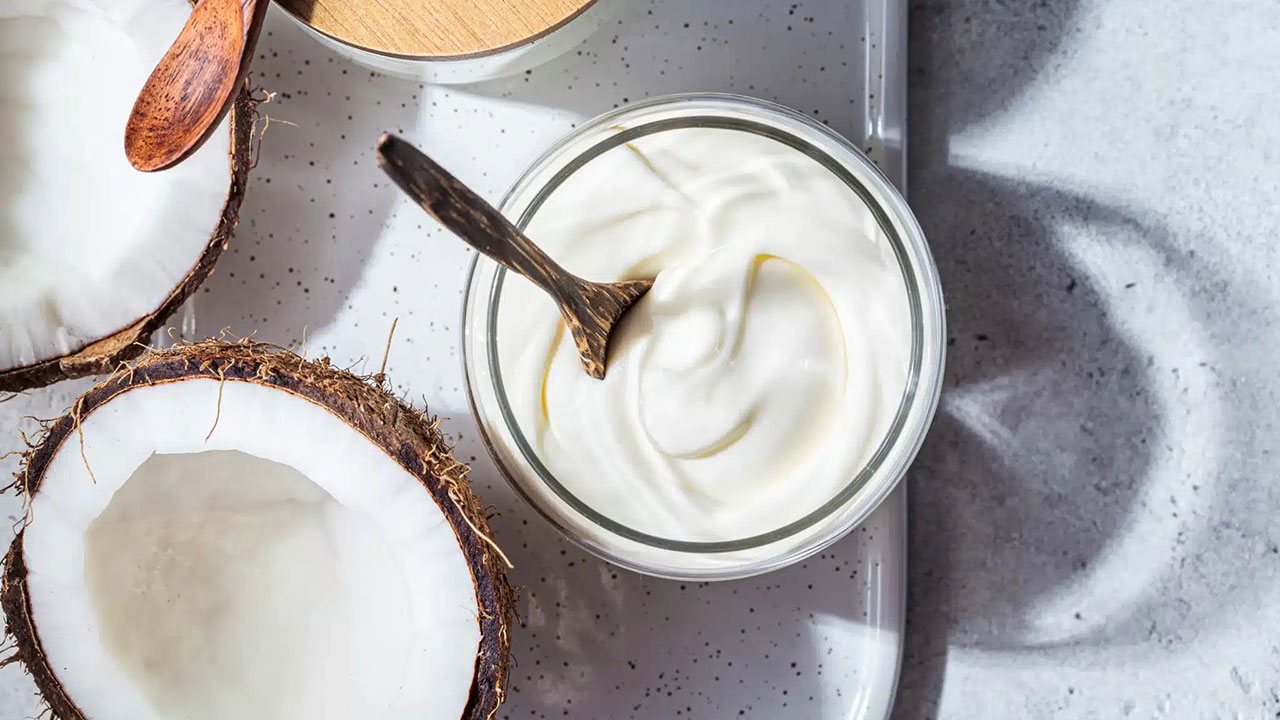
Minerals
Minerals are essential for maintaining proper bodily functions, and coconut yogurt contains several important ones. Potassium is particularly abundant, promoting heart health, nerve function, and the balance of fluids in the body. Other minerals found in coconut yogurt include magnesium, calcium, phosphorus, and iron, all of which contribute to bone health, muscle function, and overall well-being.
Antioxidants
Coconuts are a rich source of antioxidants, which help neutralize harmful free radicals in the body, reducing oxidative stress and inflammation. These antioxidants, such as ferulic acid and caffeic acid, contribute to the overall health of cells and may provide protective effects against chronic diseases.
Dietary fiber
Dietary fiber is essential for a healthy digestive system, and coconut yogurt offers a moderate amount of this nutrient. Fiber aids digestion promotes bowel regularity and may help manage blood sugar and cholesterol levels.
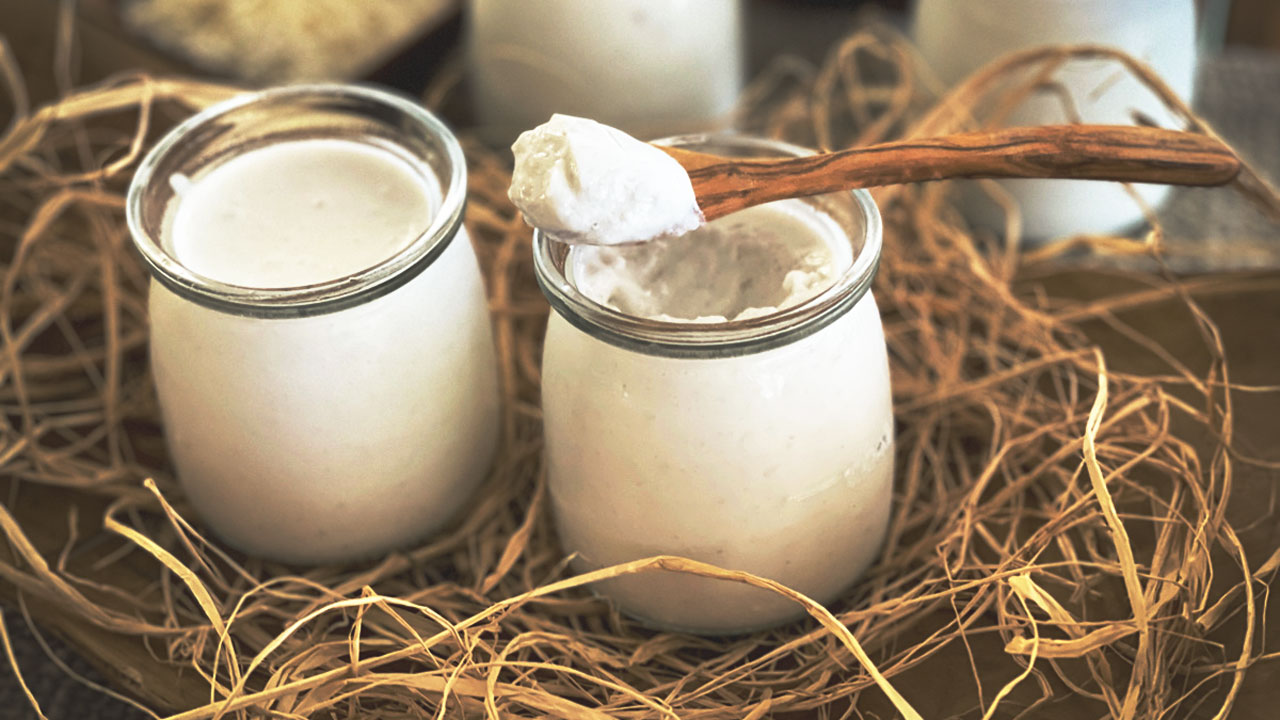
Probiotics
As a fermented food, coconut yogurt contains live probiotic cultures that support gut health. Probiotics are beneficial bacteria that help maintain a balanced gut microbiome, leading to improved digestion, enhanced nutrient absorption, and a strengthened immune system.
Key ingredients and their health benefits
- Coconuts: The star ingredient in an airy-free drink, coconuts are packed with essential nutrients and healthy fats. Rich in medium-chain triglycerides (MCTs), coconuts offer a quick energy source and may aid in boosting metabolism. They also contain lauric acid, a fatty acid with antimicrobial properties that can support the immune system.
- Probiotic Cultures: Introducing live probiotic cultures is a defining aspect of yogurt fermentation. Probiotics are beneficial bacteria that help maintain a healthy balance of gut flora. Consuming probiotics through probiotic drinks can support digestion, improve gut health, and enhance the body’s immune response.
- Natural Sweeteners (optional): While some organic drink recipes don’t require additional sweeteners, others may include natural alternatives such as agave syrup, maple syrup, or honey to add a touch of sweetness without relying on refined sugars. These natural sweeteners provide a more nutritious option while maintaining a delectable taste.
- Flavorings (optional): To enhance the flavor profile, alternative drinks can be infused with various natural additives like vanilla extract, cinnamon, or fruit purees. These additions elevate the taste and introduce extra nutrients and antioxidants to the final product.
Its key ingredients contribute to its unique taste and texture and offer many health benefits, making it a delightful addition to any balanced diet.
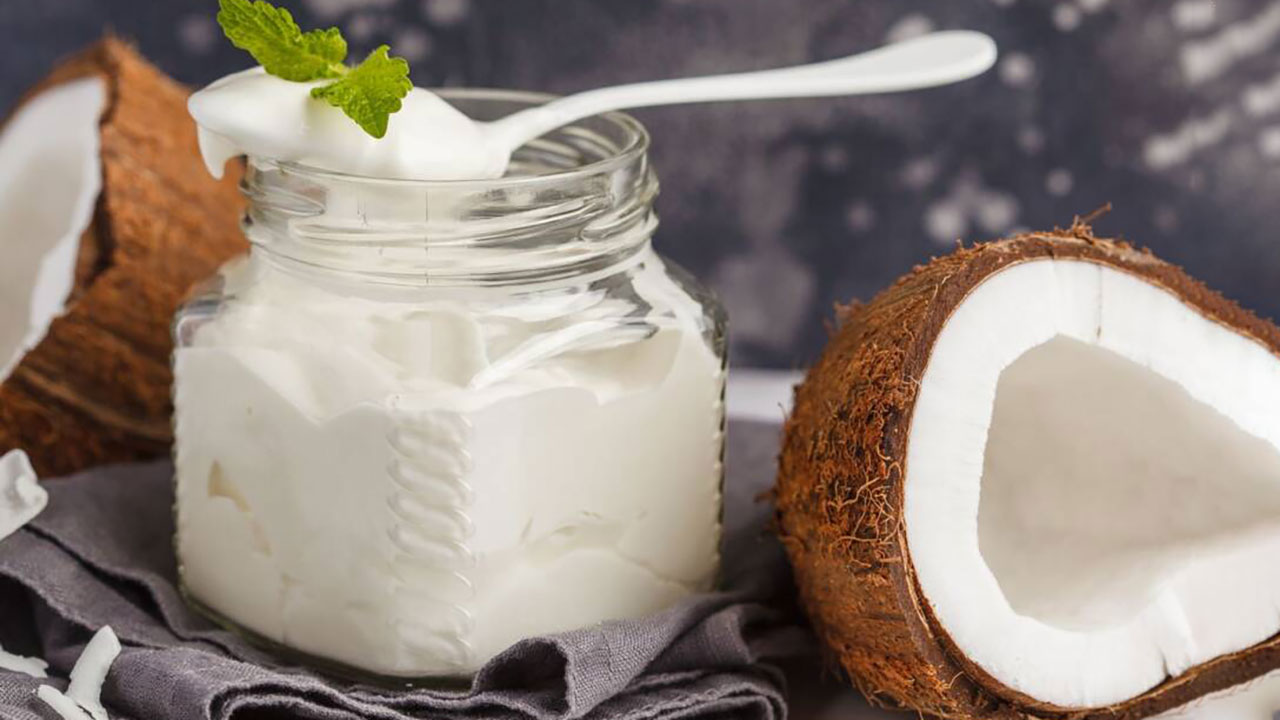
How to make coconut yogurt at home
If you are an adventurous food and want to start your homemade culinary journey, making coconut yogurt is a rewarding and fulfilling experience. Try out the instructions below to enjoy the benefits of coconut yogurt right in your kitchen.
Equipment
- Blender or food processor
- Saucepan
- Whisk
- Sterilized glass jars or containers with lids
- Kitchen thermometer
- Incubator or a warm space with consistent temperature (e.g., oven with the light on or a yogurt maker)
Ingredients
- 2 cans (800 ml) of full-fat coconut milk (avoid coconut milk with additives or stabilizers)
- 2-3 tablespoons of coconut yogurt with live and active cultures (as a starter for fermentation) or a dairy-free probiotic capsule
- Sweeteners (optional), such as maple syrup, agave syrup, or honey, to taste
- Flavorings (optional) like vanilla extract, cinnamon, or fruit puree
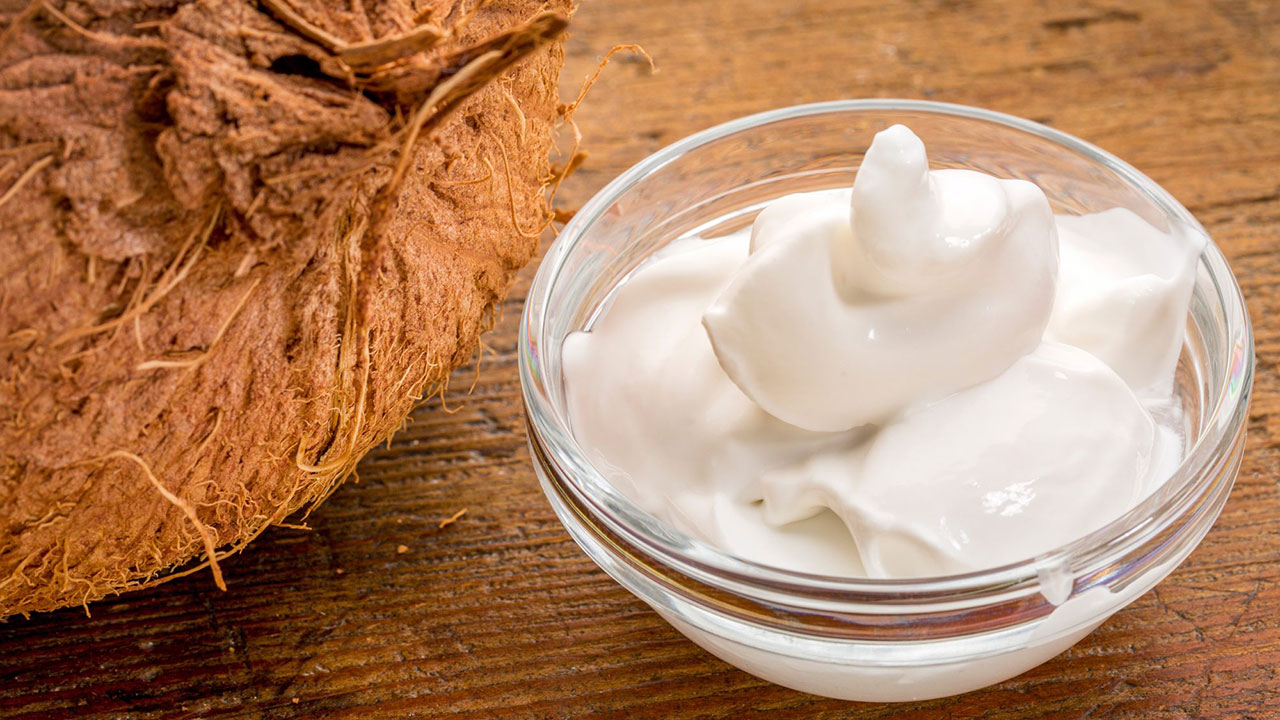
Tips for make coconut yogurt success
- Use high-quality, full-fat coconut milk without additives or stabilizers for the best results.
- Ensure that all equipment and containers are thoroughly cleaned and sterilized to prevent unwanted bacteria from contaminating the yogurt during fermentation.
- Maintaining a consistent temperature during fermentation is crucial. Use an incubator or a warm space with a stable temperature of around 110°F (43°C) to encourage the growth of probiotics.
- Using a store-bought coconut yogurt with live and active cultures as a starter for fermentation helps kick-start the process. Alternatively, you can use a dairy-free probiotic capsule to introduce beneficial bacteria.
- Experiment with sweeteners and flavorings to customize the taste of your coconut yogurt. However, avoid adding sweeteners directly into the fermentation process, as they can interfere with the growth of probiotics.
- Remember that the fermentation time may vary based on the ambient temperature and the thickness desired. Taste the yogurt after the initial fermentation time and extend it as needed.
- Store the finished coconut yogurt in the refrigerator. It will stay fresh for about a week. You can use a portion of the finished yogurt as a starter for your next batch.
Following this step-by-step guide and incorporating these tips, you’ll be well on your way to creating a delectable and probiotic-rich homemade coconut yogurt that perfectly complements your healthy and balanced lifestyle.
Coconut yogurt is a delicious and nutritious dairy-free alternative with many health benefits. Its rich nutritional profile makes it a valuable addition to a balanced diet. Enjoy the benefits of coconut yogurt to support your overall health.

